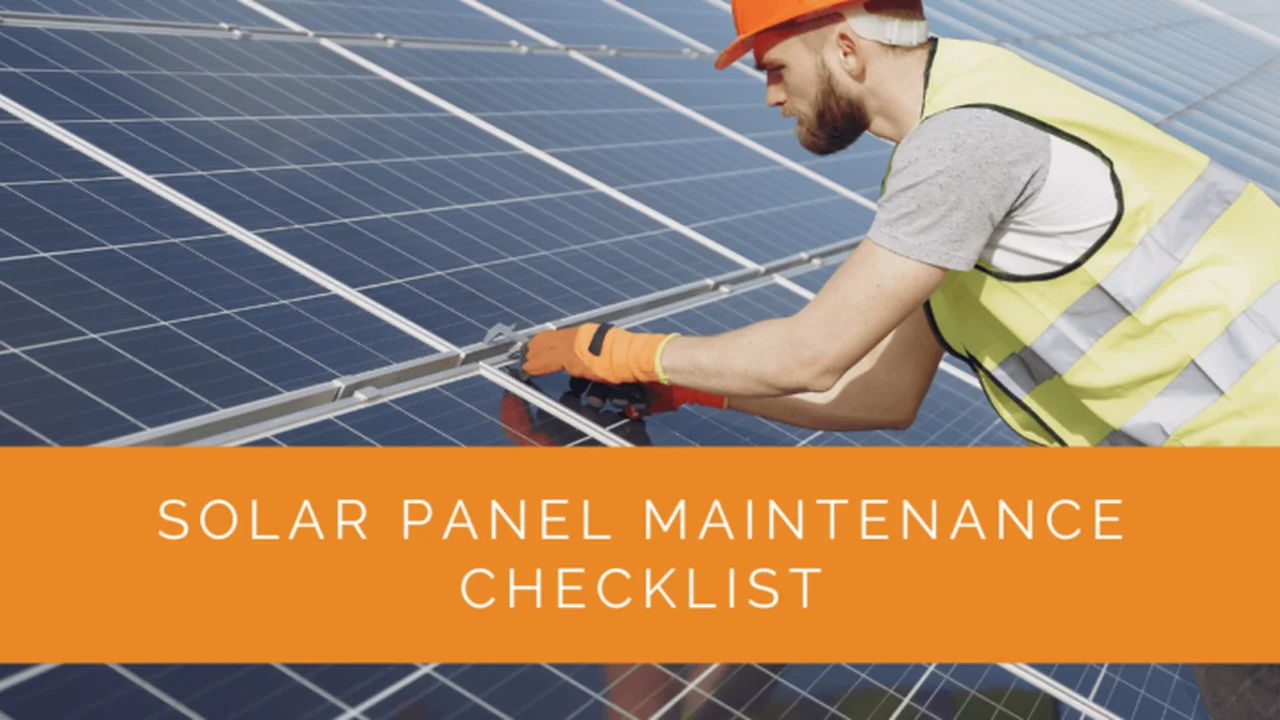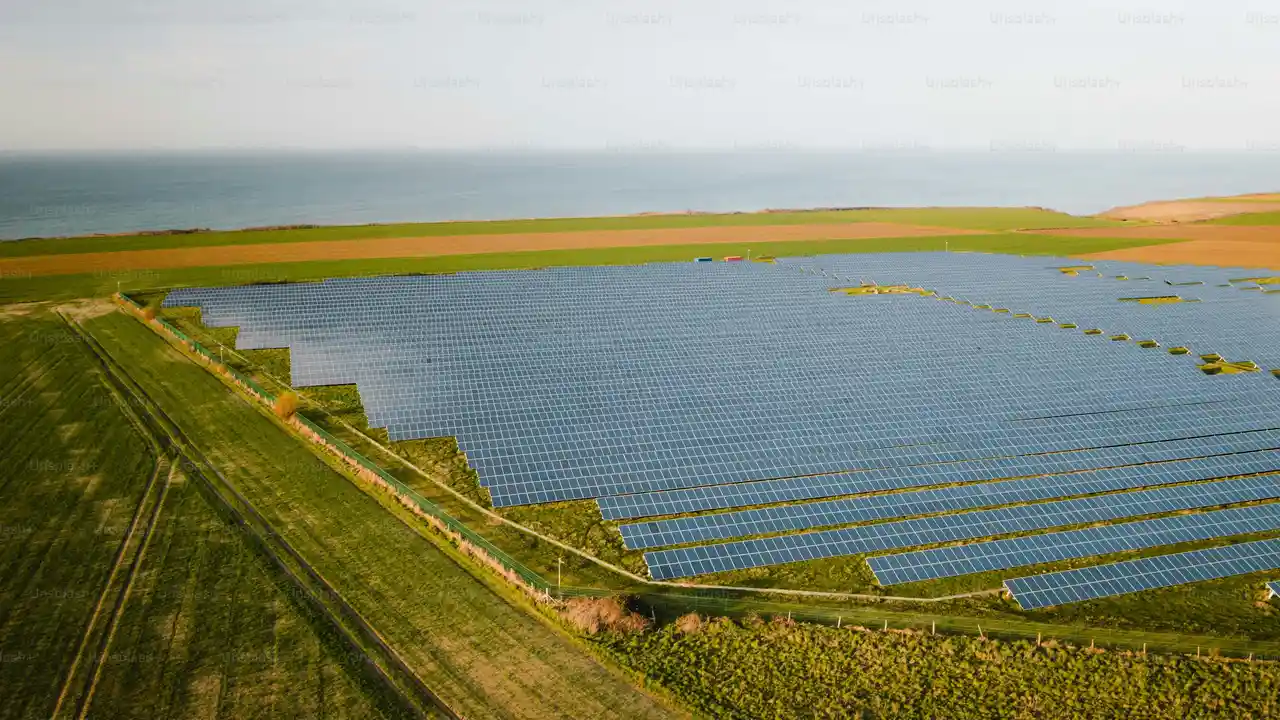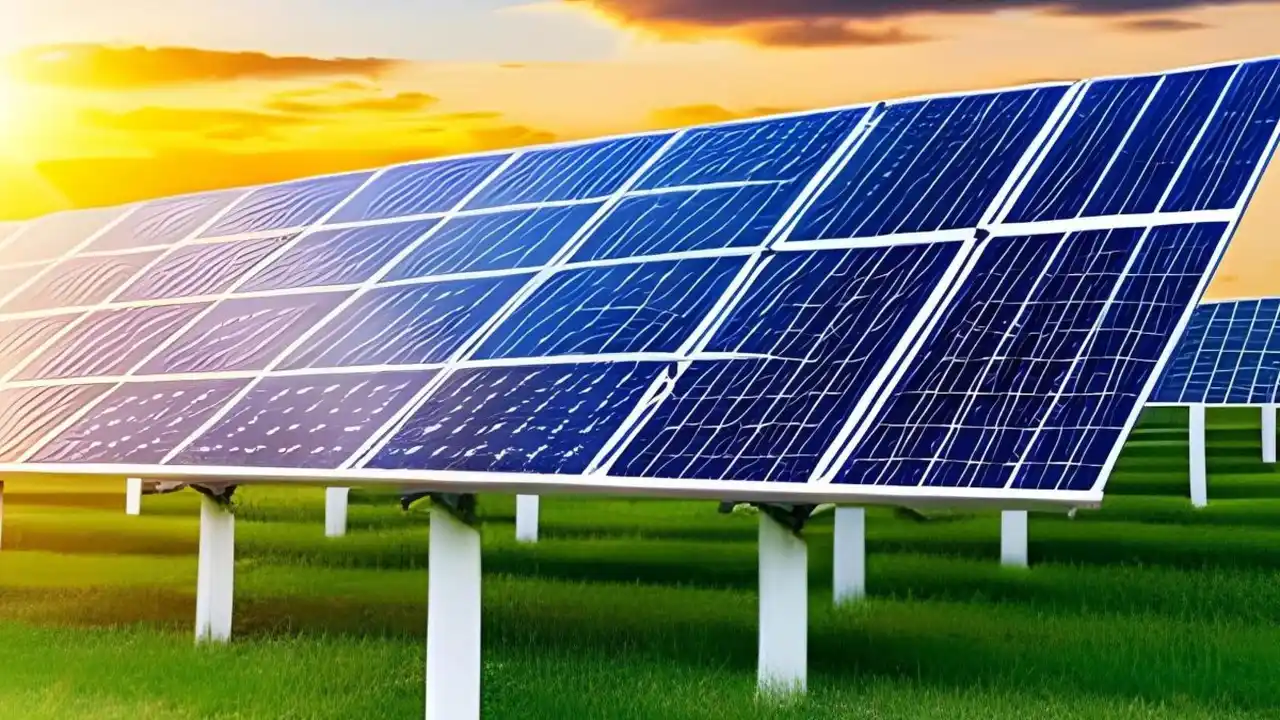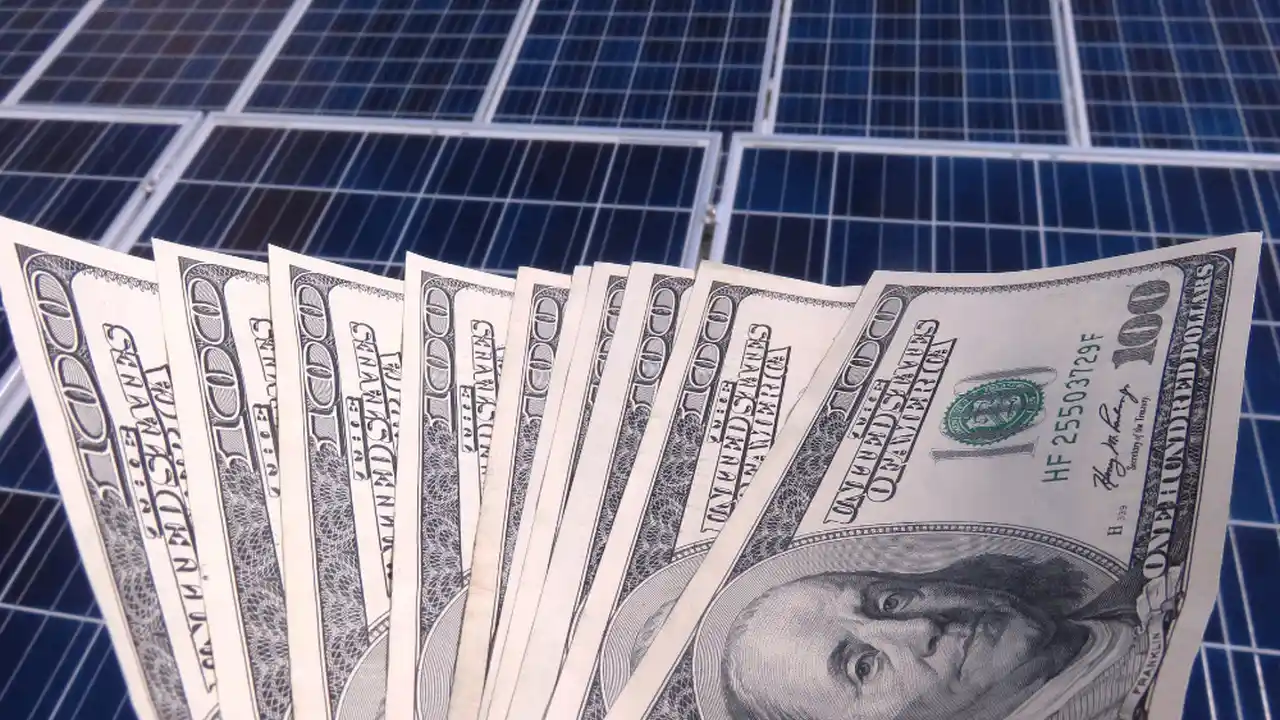Solar Panel Maintenance: Tips for Optimal Performance

Understanding the Importance of Regular Solar Panel Cleaning and Inspection
Alright, let's talk solar panels. You've invested in them, you're saving money (hopefully!), and you're helping the planet. But just like your car needs a tune-up, your solar panels need a little TLC to keep performing at their best. Ignoring maintenance can lead to a drop in efficiency, costing you money and negating some of the environmental benefits. Think of it this way: a dirty solar panel is like wearing sunglasses indoors – it's blocking the light and preventing you from getting the full benefit. This section is all about *why* you need to clean and inspect your panels regularly.
The main culprits affecting solar panel performance are dirt, dust, pollen, bird droppings, leaves, and even snow. Accumulation of these materials blocks sunlight from reaching the solar cells, reducing their ability to generate electricity. The amount of power loss can vary depending on the severity of the soiling, but studies have shown that dirty solar panels can experience a performance decrease of up to 25% or even more in some cases. That's a significant chunk of your potential savings going down the drain!
Beyond just dirt, regular inspections can help you identify potential problems early on, such as cracked panels, loose wiring, or corrosion. Addressing these issues promptly can prevent them from escalating into more serious and costly repairs. Think of it as preventative medicine for your solar energy system.
DIY Solar Panel Cleaning Methods: Saving Money While Maintaining Efficiency
Okay, so you know *why* it's important to clean your panels. Now, let's get into *how*. You might be thinking, "Can't I just spray them with a hose?" Well, you *could*, but there are better ways to do it that are both effective and safe for your panels. This section dives into do-it-yourself cleaning methods you can use to keep your solar panels sparkling and performing at their peak.
What You'll Need:
- Soft-bristled brush (like a car wash brush)
- Non-abrasive sponge or cloth
- Distilled or deionized water (tap water can leave mineral deposits)
- Mild soap (specifically designed for solar panels, if possible – otherwise, a very gentle dish soap will do)
- Garden hose with a low-pressure nozzle
- Ladder (if necessary – always prioritize safety!)
The Cleaning Process:
- Safety First! Turn off your solar panel system. This is crucial to avoid any electrical hazards. Consult your system's manual for instructions on how to safely disconnect the power. If you're uncomfortable with this step, hire a professional.
- Rinse the Panels: Use the garden hose with a low-pressure nozzle to gently rinse the panels and remove loose debris, like leaves and bird droppings.
- Apply Soap and Water: Mix a small amount of mild soap with distilled or deionized water in a bucket. Dip your soft-bristled brush or sponge into the soapy water and gently scrub the panels. Avoid using abrasive cleaners or scrubbing pads, as these can scratch the surface of the panels.
- Rinse Again: Thoroughly rinse the panels with the garden hose to remove all traces of soap. Make sure to get all the suds off, as leftover soap residue can attract dirt.
- Dry (Optional): You can let the panels air dry, or you can use a clean, non-abrasive cloth to dry them. This can help prevent water spots.
Important Considerations:
- Timing is Key: Clean your panels early in the morning or late in the evening when they are cooler. Cleaning them in direct sunlight can cause the water to evaporate quickly, leaving behind mineral deposits.
- Water Quality Matters: As mentioned earlier, distilled or deionized water is best to avoid mineral deposits. If you must use tap water, consider using a water filter attachment for your hose.
- Frequency: How often you need to clean your panels depends on your location and environmental conditions. In general, cleaning them every 6 months to a year is a good starting point. If you live in a dusty or polluted area, you may need to clean them more frequently.
Professional Solar Panel Cleaning Services: When to Call in the Experts
While DIY cleaning is perfectly fine for many homeowners, there are situations where it's best to call in the professionals. This section outlines when it's time to hand over the cleaning duties to someone with specialized equipment and expertise.
Reasons to Hire a Professional:
- Height and Accessibility: If your solar panels are located on a steep roof or are otherwise difficult to access safely, it's best to leave the cleaning to professionals. They have the necessary equipment and training to work at heights safely.
- Complex Systems: If you have a large or complex solar panel system, professional cleaning can ensure that all panels are cleaned thoroughly and efficiently.
- Stubborn Stains: If you have stubborn stains, such as bird droppings that have been baked on by the sun, professionals have specialized cleaning solutions that can remove them without damaging the panels.
- Warranty Requirements: Some solar panel manufacturers require professional cleaning to maintain the warranty. Check your warranty documents to see if this is the case.
- Peace of Mind: Even if you're capable of cleaning your panels yourself, you might simply prefer to have a professional handle it. This can save you time and effort, and give you peace of mind knowing that the job is being done correctly.
What to Look for in a Professional Solar Panel Cleaning Service:
- Experience and Reputation: Choose a company with a proven track record of providing high-quality solar panel cleaning services. Read online reviews and ask for references.
- Proper Equipment: Make sure the company uses specialized equipment that is designed for cleaning solar panels, such as soft-bristled brushes, deionized water systems, and extension poles.
- Insurance and Licensing: Verify that the company is properly insured and licensed to operate in your area.
- Safety Procedures: Ask about the company's safety procedures to ensure that they take precautions to protect themselves and your property.
- Pricing: Get quotes from several different companies before making a decision. Be sure to ask about any hidden fees or charges.
Solar Panel Inspection Checklist: Identifying Potential Problems Early
Cleaning is only half the battle. Regularly inspecting your solar panels is just as important to ensure they're functioning properly and to catch any potential problems before they escalate. This section provides a comprehensive checklist to guide you through the inspection process.
Visual Inspection Checklist:
- Panel Surface: Check for cracks, chips, scratches, or delamination on the surface of the panels.
- Cell Damage: Look for any discoloration, burning, or broken cells within the panels.
- Wiring: Inspect the wiring for any signs of damage, such as fraying, corrosion, or loose connections.
- Mounting Hardware: Check the mounting hardware for any signs of rust, corrosion, or loose bolts.
- Inverter: Inspect the inverter for any error messages or unusual noises.
- Surrounding Area: Check for any obstructions that may be shading the panels, such as trees or buildings.
Performance Monitoring:
- Energy Production: Monitor your energy production regularly to identify any significant drops in output. Most inverters have monitoring systems that allow you to track your energy production over time.
- Compare to Expected Output: Compare your actual energy production to your expected output based on your system's size, location, and weather conditions. A significant discrepancy may indicate a problem.
When to Seek Professional Help:
- If you notice any significant damage to your solar panels, such as cracks or broken cells.
- If you experience a sudden and unexplained drop in energy production.
- If you hear any unusual noises coming from your inverter.
- If you are uncomfortable inspecting your solar panels yourself.
Recommended Solar Panel Cleaning Products and Tools: Making the Job Easier
Having the right tools and products can make solar panel cleaning much easier and more effective. This section recommends some specific products and tools that are well-suited for the job.
Recommended Products:
- Solar Panel Cleaning Soap: Many companies make soaps specifically designed for solar panels. These soaps are gentle, non-abrasive, and biodegradable. Examples include:
- SunBrush Solar Cleaning Solution: This is a concentrated cleaner designed to remove dirt, dust, and grime from solar panels without leaving a residue. It's safe for all types of solar panels and is biodegradable. Available online for around $30 per gallon.
- Ecover Dish Soap: If you're looking for a readily available and environmentally friendly option, Ecover dish soap is a good choice. It's gentle and biodegradable, and it won't damage your solar panels. Available at most grocery stores for around $4 per bottle.
- Distilled or Deionized Water: As mentioned earlier, distilled or deionized water is essential to avoid mineral deposits. You can purchase distilled water at most grocery stores or pharmacies. Deionized water systems can be purchased for around $100-$500, depending on the size and features.
Recommended Tools:
- Soft-Bristled Brush: A soft-bristled brush is essential for scrubbing the panels without scratching them. Look for a brush with a long handle to reach all areas of the panels. Examples include:
- Car Wash Brush with Extension Pole: These brushes are designed for cleaning cars, but they work equally well for solar panels. Look for one with soft bristles and an adjustable extension pole. Available at most auto parts stores for around $20-$40.
- Solar Panel Cleaning Brush Kit: These kits include a brush, extension pole, and other accessories specifically designed for cleaning solar panels. Prices range from $50-$150, depending on the features.
- Water Fed Pole: A water fed pole is a great investment if you have a large solar panel system or panels that are difficult to reach. These poles have a built-in hose that allows you to rinse the panels as you scrub them. Prices range from $100-$500, depending on the length and features.
Comparing Solar Panel Cleaning Methods: Which is Right for You?
You've got options! From DIY solutions to professional services, the best cleaning method for your solar panels depends on your budget, location, and comfort level. This section breaks down the pros and cons of each approach.
DIY Cleaning:
- Pros:
- Cost-effective
- Convenient
- Allows you to inspect your panels closely
- Cons:
- Can be time-consuming
- Requires some physical effort
- May be dangerous if you have to climb on the roof
- May not be as effective as professional cleaning
- Best For: Homeowners with easy access to their solar panels and a willingness to do the work themselves.
Professional Cleaning:
- Pros:
- Thorough and effective cleaning
- Safe and convenient
- Can handle complex systems and stubborn stains
- May be required by your warranty
- Cons:
- More expensive than DIY cleaning
- Requires scheduling an appointment
- Best For: Homeowners with difficult-to-access solar panels, complex systems, or those who simply prefer to have a professional handle the job.
Automated Solar Panel Cleaning Systems:
- Pros:
- Hands-free cleaning
- Can be programmed to clean regularly
- May be more effective than manual cleaning in some cases
- Cons:
- Expensive to install
- May require professional installation
- May not be suitable for all types of solar panels
- Best For: Large-scale solar installations or homeowners who want a completely hands-free cleaning solution.
The Impact of Solar Panel Maintenance on System Lifespan and ROI
Think of solar panel maintenance as an investment, not just an expense. Regular cleaning and inspections can significantly extend the lifespan of your system and improve your return on investment (ROI). This section explains how.
Extending System Lifespan:
By keeping your solar panels clean and free of debris, you're reducing the stress on the individual cells and components. This can help prevent premature degradation and extend the lifespan of your system. Think of it like changing the oil in your car – it helps keep the engine running smoothly and prevents costly repairs down the road. Most solar panels are warrantied for 25 years, but proper maintenance can help them last even longer.
Improving ROI:
As mentioned earlier, dirty solar panels can experience a significant performance decrease. By keeping your panels clean, you're ensuring that they're generating the maximum amount of electricity possible, which translates to lower electricity bills and a faster payback period for your investment. For example, let's say your solar panel system is generating 10% less electricity due to dirt and debris. Over the course of a year, that could add up to hundreds of dollars in lost savings. Regular cleaning can eliminate this loss and help you maximize your ROI.
Maintaining Warranty:
As noted before, some solar panel manufacturers require professional cleaning to maintain the warranty. Failing to comply with these requirements could void your warranty, leaving you responsible for any repairs or replacements. Always check your warranty documents to see what the maintenance requirements are.
Real-World Examples of Solar Panel Maintenance Success Stories
Numbers and data are great, but sometimes a good story can really drive the point home. Here are a few real-world examples of how solar panel maintenance has helped homeowners and businesses save money and improve the performance of their systems.
Example 1: The Case of the Dusty Desert Home
A homeowner in Arizona was experiencing a significant drop in energy production from their solar panel system. After investigating, they discovered that the panels were covered in a thick layer of dust and sand, typical of the desert environment. They hired a professional solar panel cleaning service, and within a few hours, their panels were sparkling clean. As a result, their energy production increased by 20%, and they were able to save hundreds of dollars on their electricity bills each month.
Example 2: The Bird Dropping Business
A business owner in California noticed that their solar panels were covered in bird droppings. They tried cleaning the panels themselves, but they were unable to remove all of the stains. They decided to hire a professional solar panel cleaning service, and the results were dramatic. The professional cleaners used specialized cleaning solutions to remove the bird droppings without damaging the panels. As a result, the business owner's energy production increased by 15%, and they were able to reduce their carbon footprint.
Future Trends in Solar Panel Maintenance Technology
The field of solar panel maintenance is constantly evolving, with new technologies and innovations emerging all the time. This section explores some of the exciting trends that are shaping the future of solar panel maintenance.
Robotic Cleaning Systems:
Robotic cleaning systems are becoming increasingly popular for large-scale solar installations. These systems use robots to automatically clean the panels on a regular basis, reducing the need for manual labor. These robots can be programmed to clean the panels at specific times of day or based on environmental conditions. They can also be equipped with sensors to detect dirt and debris and adjust their cleaning accordingly.
Self-Cleaning Coatings:
Researchers are developing self-cleaning coatings that can be applied to solar panels to repel dirt and water. These coatings use nanotechnology to create a surface that is highly hydrophobic, meaning that water beads up and rolls off easily, taking dirt and debris with it. These coatings can significantly reduce the need for manual cleaning and improve the overall performance of solar panels.
Drone-Based Inspection Systems:
Drones are being used to inspect solar panels for damage and defects. Drones can be equipped with high-resolution cameras and thermal imaging sensors to detect cracks, hotspots, and other problems that may not be visible to the naked eye. This allows for faster and more efficient inspections, especially for large-scale solar installations.
:max_bytes(150000):strip_icc()/277019-baked-pork-chops-with-cream-of-mushroom-soup-DDMFS-beauty-4x3-BG-7505-5762b731cf30447d9cbbbbbf387beafa.jpg)






